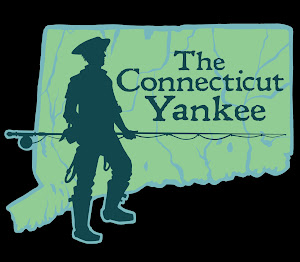Not often do I use this blog as a pulpit, but this is an important issue and something that could be avoided if enough anglers speak up. I fear that many Connecticut anglers don't realize what is at risk and by the time they find out, it could already be too late. So here is the skinny...
ne of only three CT DEEP hatcheries, will shut down due to budget cuts if we don't voice our opinions to the powers at be. The key is to make the State of Connecticut aware that this decision will ultimately cost us money instead of saving it by hurting fishing license sales and other spending by trout and salmon anglers. Every phone call, email and letter reiterating this message to members of the General Assembly's Appropriations Committee, specifically the Conservation & Development Subcommittee, will help our cause.
Kensington Hatchery is unique because it is responsible for all of Connecticut's Seeforellen brown trout, which are a German strain of trout that grow very large. The facility in question just so happens to have the only disease-free stock of Seeforellens left in the nation and closing it would mean tossing years of hard work right out the window. The hatchery produces approximately 50,000 catchable size trout and 700 surplus broodstock trout annually that are stocked in our most important trout waters. In addition, 250,000 of its trout fry and parr are used annually in programs to enhance sea run and wild trout populations. Simply put, Kensington fish live longer, grow larger, and are wilder in nature than trout coming from our other hatcheries.
But this is not just about trout. Approximately 2,000 broodstock Atlantic salmon are produced at Kensington Hatchery and stocked annually into the Naugatuck and Shetucket Rivers, as well as a handful of lakes. The broodstock salmon fishery we have now is quite popular and attracts anglers from around the Northeast. In fact, it is estimated that Connecticut's Atlantic salmon fishery is responsible for 5,000 – 7,000 trips per year and those anglers spend a combined $500,000 doing so. be no more broodstock salmon stocked in our waterways! Furthermore, the Salmon in the Classroom program, known as "Fish Friends," will no longer exist in the 90 Connecticut schools that now receive salmon eggs, and the last of the remaining salmon fry released in our rivers and streams, about 300,000 per year, will also go bye-bye if Kensington closes its doors.
Sen. Bob Duff (Co-Chair) Duff@senatedems.ct.gov; (860) 240-0414
Rep. Bryan Hurlburt (Co-Chair) Bryan.Hurlburt@cga.ct.gov; (860) 240-8585
Sen. Clark Chapin (Ranking Member) Clark.Chapin@cga.ct.gov; (860) 240-8816
Rep. Craig Miner (Ranking Member) Craig.Miner@housegop.ct.gov; (860) 240-8700
Sen. Beth Bye Email; (860) 240-0428
Rep. Ezequiel Santiago Ezequiel.Santiago@cga.ct.gov; (860) 240-8585
Rep. Charles D. Clemons Charles.D.Clemons@cga.ct.gov; (860) 240-8585
Rep. Peter Tercyak Peter.Tercyak@cga.ct.gov; (860) 240-8585
Rep. Patricia Dillon Patricia.Dillon@cga.ct.gov; (860) 240-8585
Rep. Mitch Bolinsky Mitch.Bolinsky@housegop.ct.gov; (860) 240-8700
Sen. Andrew Maynard Email; (860) 240-0591
Rep. Jay Case Jay.Case@housegop.ct.gov; (860) 240-8700
Rep. Patricia Billie Miller Patricia.Miller@cga.ct.gov; (860) 240-8585
Rep. Melissa Ziobron Melissa.Ziobron@housegop.ct.gov; (860) 240-8700
Rep. Kevin Ryan Kevin.Ryan@cga.ct.gov; (860) 240-8585
Rep. Roberta Willis Roberta.Willis@cga.ct.gov; (860) 240-0271
 |
| Connecticut's broodstock Atlantic salmon fishery will be gone for good if Kensington closes. |

.jpg)







































Excellent post. I just did a similar post on my blog. Makes no sense. Thanks for spreading the word.
ReplyDeleteI will tweet this to my followers. This is a great post.
ReplyDeleteExcellent information. Not sure they will listen to an out of stater, but you presented the case well.
ReplyDeleteI'll share it the info in all my circles.
Thanks for all your help gentlemen! Keep spreading the word
ReplyDelete